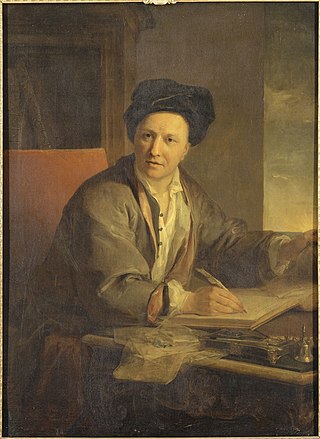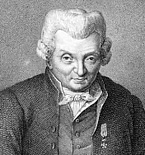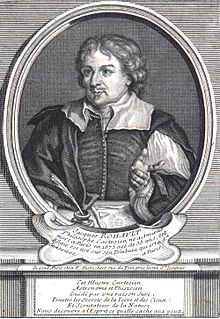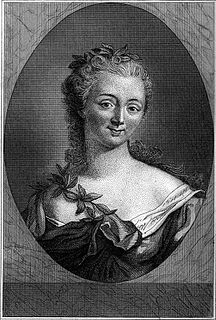Related Research Articles

Bernard Le Bovier de Fontenelle, also called Bernard Le Bouyer de Fontenelle, was a French author and an influential member of three of the academies of the Institut de France, noted especially for his accessible treatment of scientific topics during the unfolding of the Age of Enlightenment.

Augustin Barruel was a French publicist and Jesuit priest. He is now mostly known for setting forth the conspiracy theory involving the Bavarian Illuminati and the Jacobins in his book Memoirs Illustrating the History of Jacobinism published in 1797. In short, Barruel wrote that the French Revolution was planned and executed by the secret societies.

André Morellet was a French economist, author of various writings, contributor to the Encyclopédie and one of the last Enlightenment Age philosophes.

Élie Catherine Fréron was a French literary critic and controversialist whose career focused on countering the influence of the philosophes of the French Enlightenment, partly thorough his vehicle, the Année littéraire. Thus Fréron, in recruiting young writers to counter the literary establishment became central to the movement now called the Counter-Enlightenment.
The Couperin family was a musical dynasty of professional composers and performers. They were the most prolific family in French musical history, active during the Baroque era. Louis Couperin and his nephew, François Couperin le grand, are the best known members of the family.

Claude-Henri de Fusée, abbé de Voisenon was a French playwright and writer.
Charles Clémencet was a French Benedictine historian.

Antoine Augustin Calmet, O.S.B., a French Benedictine monk, was born at Ménil-la-Horgne, then in the Duchy of Bar, part of the Holy Roman Empire.

Évrard Titon du Tillet is best known for his important biographical chronicle, Le Parnasse françois, composed of brief anecdotal vite of famous French poets and musicians of his time, under the reign of Louis XIV and the Régence.
Jean-Baptiste Réveillon, was a French wallpaper manufacturer. His career was an exemplary story of the self-made businessman in the Ancien Régime.

The Abbé Pierre François Guyot-Desfontaines was a French journalist, translator and popular historian.

Étienne-Jehandier Desrochers was an 18th-century French engraver best known for his small portraits of his contemporaries.
Mariamne is a 1725 French tragedy by Augustin Nadal based around the Herodian dynasty. Nadal was encouraged to produce the play after his rival Voltaire's play on the same story had failed after only one performance the previous year (1724). However, at the play's February 1725 premiere at the Comédie-Française, the audience booed its opening scenes and demanded that Voltaire's play be put on instead.
Hérode et Mariamne or Mariamne is a 1724 tragedy by Voltaire. Adapted from the writings of the historian Josephus, it is set in ancient Jerusalem, and portrays the tragic death of Mariamne at the hands of her jealous husband, Herod the Great, king of Judea, who suspects her of an intrigue with Varus, the Roman governor of Syria.
Amable de Bourzeis was a French churchman, writer, hellenist, and Academician.
Charles Piroye was a French Baroque organist and composer.

Antoine de La FossePremier gentilhomme de la Chambre, was a French playwright who wrote four tragedies, and was the last French author of tragedies to make a name for himself at the end of the 17th century.

Anne-Marie Fiquet du Boccage, née Le Page, was an 18th-century French writer, poet, and playwright.
The abbé de La Marre was an 18th-century French homme de lettres. Voltaire was interested in him and gave him some literary works to do. He was a member of the Société du bout du banc hosted by Mlle Quinault.
Augustin-Louis, marquis de Ximénès was an 18th-century French poet and playwright.